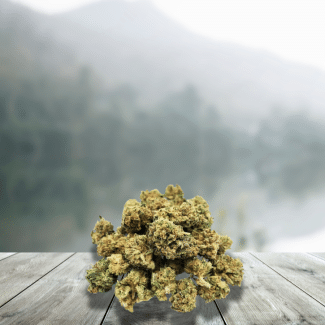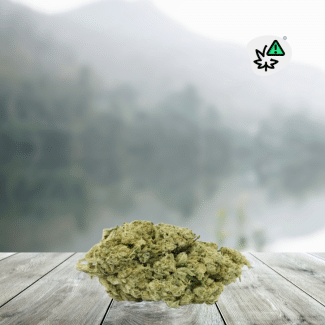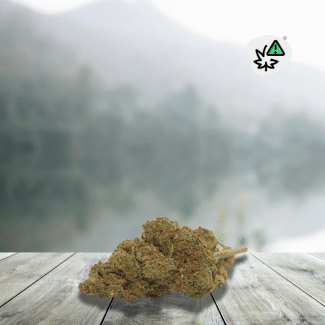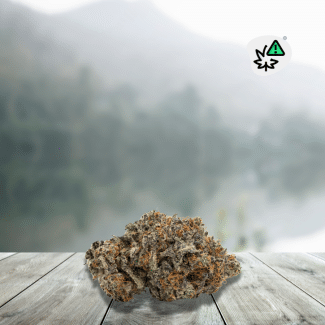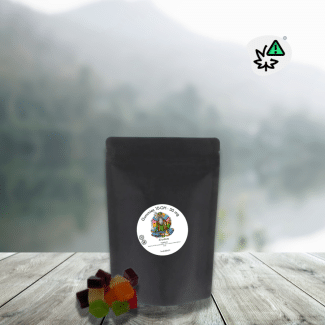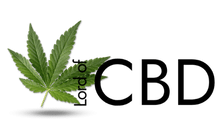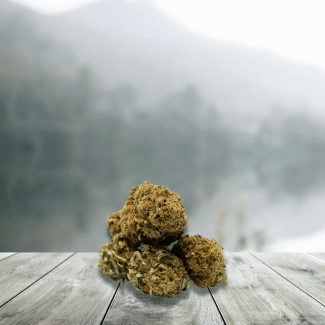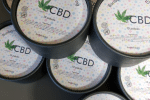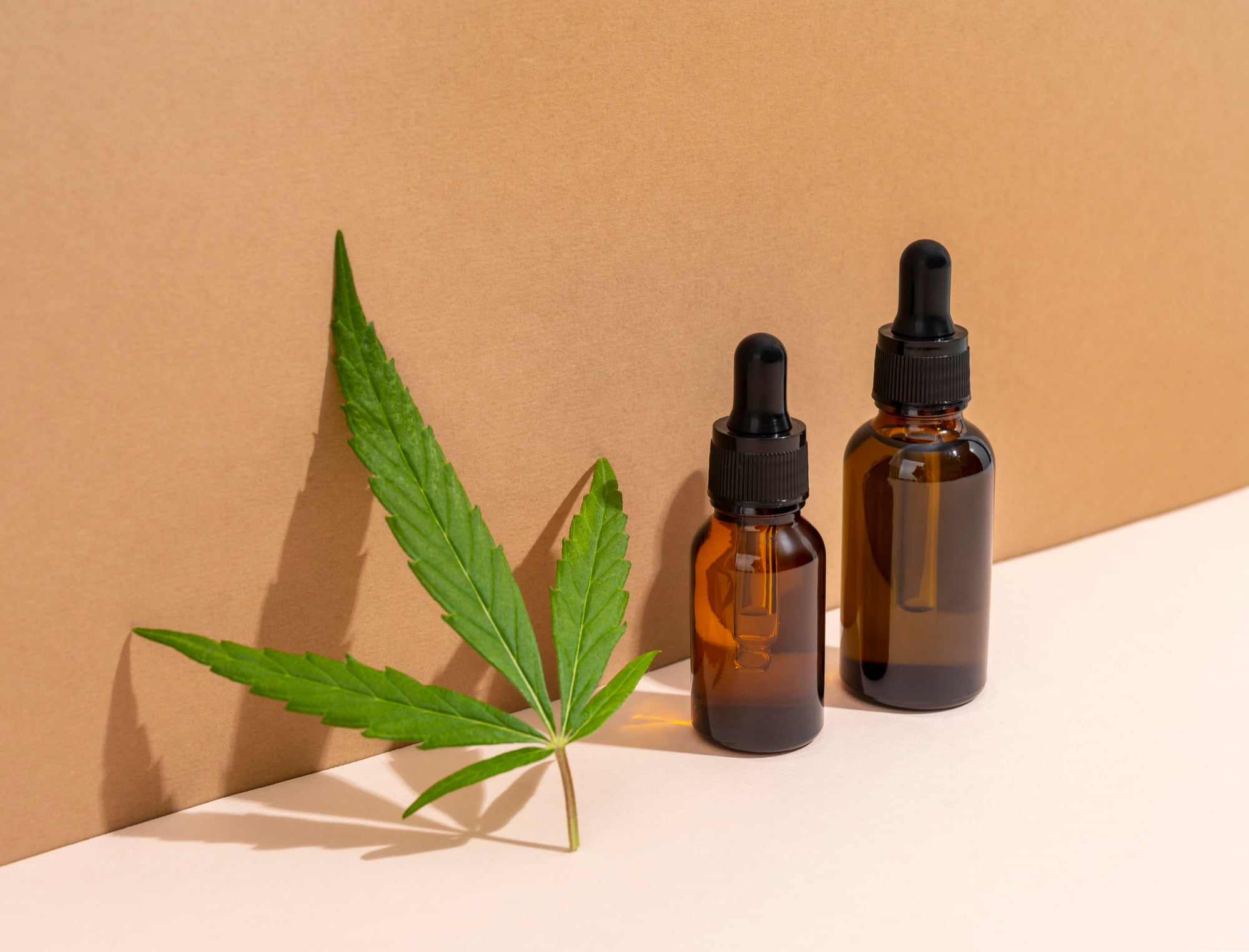
The dosage of CBD (cannabidiol) oil is a crucial aspect for those looking to benefit from its potential effects. CBD, a compound found in the cannabis plant, is recognized for its multiple therapeutic benefits, without the psychoactive effects associated with THC. However, finding the right dosage can be a challenge, as it varies depending on several factors such as the individual's weight, age, metabolism and the nature of the health problem being treated.
Understanding CBD and its effects
To start using CBD oil safely and effectively, it is essential to follow some key steps. Caution is required, especially when it comes to products having a direct interaction with our well-being and our health.
1. Medical Consultation
- Importance of medical advice : Before integrating CBD into your routine, it is crucial to consult a health professional. This is especially important for people on medication, as CBD can interact with certain medications.
- Discussing Medical History : A doctor will be able to evaluate your medical history and determine if CBD is appropriate for you. He or she will also be able to advise you on the correct dosage and monitor possible drug interactions.
- Medical monitoring : In the event of adverse effects or questions regarding treatment, regular medical monitoring is recommended.
2. Start with a Low Dose
- Principle of caution : Starting with a low dose is the golden rule. This allows your body to get used to the CBD and reduces the risk of side effects.
- Gradual increase : If the desired effects are not achieved, the dose can be increased gradually. This approach makes it possible to identify the minimum quantity necessary to obtain the desired results, while limiting risks.
- Listen to your body : Each individual reacts differently to CBD. It is therefore important to remain attentive to your body's reactions and adjust the dose accordingly.
3. Follow Product Recommendations
- Read labels : CBD products vary in concentration and formulation. Carefully reading the labels and instructions provided by the manufacturer is essential to understanding how to use the product correctly.
- Follow suggested dosages : Although dose adjustment may be necessary, it is important to start by following the manufacturer's recommendations and not exceed the maximum suggested dosage.
- Choose quality products : Opt for high-quality CBD products from trusted sources. Look for products that have undergone third-party lab testing to ensure purity and concentration.
Starting any CBD treatment should be approached with caution and responsibility. Consultation with a doctor, starting with a low dose, and following product recommendations are crucial steps to ensure a safe and beneficial experience. By remaining attentive to your body's responses and following professional advice, you can optimize the use of CBD for your specific needs.
Interaction with the endocannabinoid system
- Role of the endocannabinoid system : The endocannabinoid system is a complex network of receptors and neurotransmitters that play a crucial role in regulating many bodily functions, such as mood, sleep, appetite, pain, and immune response. It mainly includes two types of receptors: CB1 and CB2.
- Mechanism of action of CBD : Unlike THC which binds directly to CB1 (mainly located in the brain) and CB2 (found in the immune system) receptors, CBD acts indirectly on these receptors. It modifies the ability of receptors to bind cannabinoids and influences other types of receptors, such as serotonergic receptors. This indirect action contributes to the absence of psychoactive effect and the therapeutic effects of CBD.
- Influence on neurotransmitters : CBD may also affect the levels of certain neurotransmitters in the brain, contributing to its effects on mood, anxiety and pain perception.
Therapeutic effects of CBD
- Anxiolytic and antidepressant : Studies suggest that CBD may help reduce anxiety and depressive symptoms, in part through its action on serotonergic receptors.
- Painkiller : CBD is known for its analgesic properties, making it potentially useful in treating various forms of chronic pain.
- Neuroprotective : CBD has been suggested to have neuroprotective effects, which may be beneficial in conditions such as epilepsy and multiple sclerosis.
- Anti-inflammatory : CBD may also have anti-inflammatory properties, useful in treating various inflammatory conditions.
- Effects on sleep : CBD may help regulate sleep, providing benefits to people suffering from insomnia or sleep disorders.
CBD interacts in complex ways with the body's endocannabinoid system, providing a variety of potential therapeutic effects without the psychoactive effects associated with THC. These properties make it a promising research subject and an attractive treatment option for a range of conditions. However, it is important to note that research on CBD is still ongoing and more studies are needed to fully understand its therapeutic potential and implications.
Factors influencing CBD oil dosage
The factors influencing the dosage of CBD oil are diverse and essential to understand to optimize the use of this product. CBD, a non-psychoactive compound extracted from the cannabis plant, has gained popularity due to its potential health benefits. However, determining the correct dose can be complex, as it depends on several individual variables.
1. Body weight
Body weight plays a significant role in CBD oil dosage. In general, a person with a heavier weight will require a larger dose to feel the same effects as a lighter person. This is explained by the distribution of CBD in the body, which is influenced by body mass.
- Weight-Based Dosing : It is common to start with a rule of thumb of 1 mg of CBD for every 10 kg of body weight. For example, a person weighing 70 kg could start with a dose of 7 mg of CBD.
2. CBD concentration
The concentration of CBD in the oil varies from product to product. Some products contain a higher concentration of CBD per milliliter, meaning even a small amount can provide a high dose.
- Read the label : It is crucial to read the product label carefully to understand how much CBD is in each milliliter of oil. This will allow the dose to be adjusted based on the concentration.
3. Individual sensitivity
Sensitivity to CBD varies from person to person. This sensitivity can be influenced by genetic factors, metabolism, medical history and even lifestyle.
- Listen to your body : It is important to start with a low dose and observe how the body reacts. If the desired effects are not achieved, the dose can be increased gradually.
4. Condition treated
The type and severity of the condition being treated also influences the dosage needed. For milder conditions like stress or mild sleep disturbances, a lower dose may be sufficient. On the other hand, for more serious conditions such as chronic pain or certain neurological conditions, a higher dose may be necessary.
- Condition-Specific Dosing : It is recommended to seek studies or recommendations specific to the condition being treated. A healthcare professional can also provide advice on the appropriate dosage for a particular medical condition.
In summary
CBD oil dosage depends on multiple factors, including body weight, CBD concentration, individual sensitivity, and the medical condition being treated. It is essential to start with a low dose and gradually adjust according to individual reactions and needs, while taking into account specific recommendations related to each factor. Medical support is always recommended to optimize the treatment and ensure its effectiveness and safety.
How to get started
Initiating the use of CBD oil requires a careful and informed approach. Here's a more in-depth look at the essential steps to take to get started:
Medical consultation
- Importance of the advice of a health professional : Before starting CBD treatment, it is essential to consult a doctor. This step is even more important for people on medication because CBD can interact with certain medications. The doctor can assess whether the use of CBD is suitable for your specific situation.
- Discussion of Medical History and Treatment Goals : During the consultation, discuss your medical history, current conditions, and what you hope to achieve with CBD. The doctor can thus provide you with personalized advice and determine whether CBD may interfere with your current medications or medical conditions.
- Regular monitoring : Regular medical monitoring is recommended to monitor the effects of CBD and adjust treatment if necessary.
Start with a Low Dose
- Gradual approach : Start with a low dose of CBD and observe how your body responds. This method helps minimize the risk of side effects and determine the effective dose for you.
- Gradual increase : If the desired effects are not observed, you can increase the dose slowly. This helps find the optimal “therapeutic dose,” that is, the lowest dose that provides the desired effects.
- Dosage Personalization : The optimal dosage varies from person to person depending on various factors such as weight, metabolism and the condition being treated. Listening to your body is therefore essential to adjust the dosage correctly.
Follow Product Recommendations
- Read the instructions carefully : CBD products vary in terms of concentration. It is important to read the instructions that come with the product to understand how to use it and in what quantity.
- Following suggested dosages : Although dose adjustment may be necessary, it is recommended to start by following the manufacturer's suggested dosages. This helps avoid overconsumption and reduces the risk of adverse effects.
- CBD quality and source : Choose CBD products from trusted and verified sources. Tested and certified products ensure better safety and effectiveness.
The approach to starting CBD use should be methodical and careful. Medical consultation, starting with a low dose, and paying attention to product instructions are fundamental steps for a safe and effective experience. By following these guidelines, you can maximize the potential benefits of CBD while minimizing the risks.
Common dosage
CBD oil dosage is an essential component in achieving the desired effects while minimizing the risk of side effects. It is important to understand that CBD affects each individual differently, and therefore dosages should be adjusted based on individual response. Here's a more in-depth exploration of common dosages:
Low Dose
- Definition and Usage : A low dose, usually around 1 mg of CBD for every 10 kg of body weight, is often recommended for beginners or for those with high sensitivity to CBD.
- Purpose and Effects : This dose may be sufficient to manage mild conditions, such as minor stress or mild anxiety. It is also useful for assessing the body's reaction to CBD without causing significant adverse effects.
- Gradual adjustment : If the desired effects are not achieved after a period of use, the dose can be increased gradually.
Average Dose
- Definition and use : The average dose, between 3 and 5 mg of CBD per 10 kg of body weight, is often used to treat moderate symptoms.
- Common Applications : This dosage range is generally effective for conditions such as moderate pain, inflammation, anxiety, and sleep disorders.
- Observation of effects : At this level, the therapeutic effects are more pronounced, and it is important to observe how the body reacts to ensure that the dose remains therapeutic and does not cause side effects.
High Dose
- Definition and usage : A high dose, defined as more than 6 mg of CBD per 10 kg of body weight, is generally reserved for situations where more severe symptoms need to be managed.
- Targeted Conditions : High doses are often used in the treatment of serious conditions such as severe chronic pain, neurological disorders, or certain inflammatory diseases.
- Caution Required : At these levels, it is imperative to consult a healthcare professional to monitor the effects and avoid drug interactions or unwanted side effects.
These dosages serve as general guidelines and should be adjusted based on individual reactions and treatment goals. Dosage customization is key, and it is always recommended to start with a lower dose and gradually increase. By considering these guidelines and working with a healthcare professional, CBD users can find the optimal dosage for their specific needs.
Administration methods
The administration of CBD oil can be done in several ways, each of which has its own advantages and particularities. The two most common methods are sublingual and ingestion. Here is a more detailed development on these methods:
Sublingual Administration
- Administration Process : Sublingual administration involves placing the CBD oil under the tongue and allowing it to absorb for approximately 60 to 90 seconds before swallowing. This method allows CBD compounds to pass directly into the bloodstream through blood vessels under the tongue.
- Advantages : One of the main advantages of this method is the speed of absorption. By avoiding the digestive system, CBD can work more quickly, often within 15 to 30 minutes. This can be especially beneficial for those seeking quick relief, such as with anxiety or acute pain.
- Considerations : It is important to note that the taste of CBD oil may be strong or unpleasant to some, and this method requires some restraint before swallowing the product.
Administration by Ingestion
- Administration Process : Ingestion of CBD is done by swallowing the oil directly or incorporating it into food or drinks. Once ingested, CBD passes through the digestive system and is then metabolized by the liver.
- Advantages : The advantage of this method is its ease of use and the possibility of masking the taste of CBD by mixing it with other foods. Additionally, the effects, although slower to appear, may last longer due to the prolonged digestion process.
- Time to onset of effects : Ingestion may delay the onset of effects of CBD, usually between 1 and 2 hours after consumption. This may be more suitable for those looking for sustained effects over a longer period of time, such as for chronic pain relief or to improve sleep.
The choice of CBD oil administration method depends on individual preferences, desired speed of action, and ease of use. Sublingual administration offers rapid and direct action, while ingestion offers more prolonged effects, although slower to manifest. It is important to consider these differences when choosing the method best suited to your needs and lifestyle.
Monitoring and adjustment
Monitoring and adjusting CBD oil dosage are key steps to ensure effective and safe use of this product. Here is a more detailed development on these aspects:
Dosing CBD oil is a highly personalized process that requires careful attention to detail and a methodical approach. By starting with small doses, gradually increasing and taking into account personal factors, while consulting a healthcare professional regularly, it is possible to find the optimal dosage that meets your specific needs. This approach not only guarantees the effectiveness of the processing, but also ensures its security and suitability for each individual user.
- Purpose of the Log : A tracking log is a valuable tool for recording your CBD dosages, as well as the effects you experience. This can help identify the optimal dosage and observe changes over time.
- What to note : In this diary, it is recommended to note the date, time, dose of CBD consumed, method of administration, and effects experienced. It's also helpful to document other factors like your mindset, diet, and stress levels, as they can influence how your body responds to CBD.
- Data Analysis : By regularly reviewing your notes, you can detect patterns or trends, which is especially useful for adjusting the dose or method of administration.
Gradual Dosage Adjustments
- Gradual Approach : If desired effects are not achieved or side effects are observed, it is important to adjust the dose gradually and carefully. This allows the amount of CBD to be increased or decreased in a controlled manner.
- Listening to the body : Pay attention to your body's signals. If you experience any side effects, reduce the dose. If the therapeutic effects are not sufficient, consider increasing the dose slowly.
- Medical consultation : If in doubt or questions regarding dosage adjustments, it is always advisable to consult a healthcare professional, especially if you are taking other medications.
Monitoring and adjusting dosage is essential to getting the most out of CBD oil. By keeping a tracking diary and gradually adjusting the dose, you can personalize your experience with CBD, while ensuring safe and effective use. Listening to your body and regularly consulting a health professional remain recommended practices to optimize your CBD treatment.
Conclusion
The conclusion on CBD oil dosage highlights the importance of a personalized and thoughtful approach. CBD, while promising for many therapeutic applications, requires careful consideration to determine the most effective and safe dosage for each individual. Here is a more detailed development on this conclusion:
Dosage Personalization
- Individual adaptation : Each person responds differently to CBD due to factors such as metabolism, weight, personal sensitivity, and overall health. It is therefore crucial to adapt the CBD dosage according to these individual characteristics.
- Ongoing evaluation : Determining optimal dosage is a dynamic process. What works for one person may not work for another. Continuous evaluation of effects and necessary adjustments is therefore essential.
Progressive Approach
- Start small : It is wise to start with small doses and observe how the body reacts. This minimizes the risk of side effects and helps determine the minimum effective dose.
- Gradual increase : If therapeutic effects are not achieved, the dose can be increased gradually, while monitoring the body's responses.
Medical consultation
- Role of the healthcare professional : Consultation with a healthcare professional is essential, particularly for people with existing medical conditions or taking other medications. The professional can offer personalized advice and help avoid drug interactions.
- Medical monitoring : Regular monitoring with a healthcare professional can help adjust treatment safely and effectively.
Dosing CBD oil is a highly personalized process that requires careful attention to detail and a methodical approach. By starting with small doses, gradually increasing and taking into account personal factors, while consulting a healthcare professional regularly, it is possible to find the optimal dosage that meets your specific needs. This approach not only guarantees the effectiveness of the processing, but also ensures its security and suitability for each individual user.

